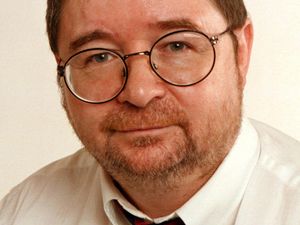Poll: Should the DNA of three people be allowed in the creation of IVF babies?
David Cameron was among MPs who took the historic step today of approving what critics have called "three parent babies" in order to prevent devastating inherited diseases.
The MPs voted for a change in the law that means Britain is set to be the first country in the world to permit mitochondrial donation, which involves conceiving IVF babies with DNA from three different people.
But, speaking shortly before the vote, the Prime Minister insisted there was no question of "playing God".
The move to amend the 2008 Human Fertilisation and Embryology Act, which forbids IVF treatments that affect inherited "germline" DNA in eggs and sperm, was carried by 382 votes to 128.
Labour leader Ed Miliband and Deputy Prime Minister Nick Clegg also exercised their free vote to support the decision.
If the House of Lords ratifies the change - which seems likely - the first baby conceived with the procedure could be born by the end of next year.
The child would have "nuclear" DNA determining individual traits such as facial features and personality from its two parents, plus a tiny amount of mitochondrial DNA (mDNA) from an anonymous woman donor.
Research has shown that mitochondrial donation could potentially help almost 2,500 women of reproductive age in the UK.
All are at risk of transmitting harmful DNA mutations in the mitochondria, tiny rod-like power plants in cells, onto their children and future generations.
Mitochondrial DNA (mDNA) is only involved in metabolism and makes up just 0.1% of a person's genetic code.
But faults in mDNA can lead to a wide range of devastating and sometimes life-threatening inherited diseases responsible for conditions including blindness, deafness, muscle wasting, diabetes, heart failure and dementia.
Scientists and charity leaders hailed the "milestone" of today's vote which they said offered the possibility of saving generations from the misery of terrible disease or lives cut short.
Supporters of the new regulations argued that it would be immoral not to take advantage of such technology.
But opponents, including church leaders and pro-life groups, warned that the treatments were being rushed in too hastily and marked the start of a "slippery slope" towards designer babies and eugenics.
Josephine Quintavalle, from the pro-life group Comment on Reproductive Ethics (Core), called the procedure a "dangerous and unethical re-writing of human biology".
She remarked that it was "a sad, sad day for both science and ethics in the United Kingdom".
Dr David King, director of the watchdog group Human Genetics Alert, said: "This is an historic moment, the first time that we've said OK to genetic manipulation of our children. I think all of our children may end up paying for this decision."
Scientists led by Professor Doug Turnbull at the Wellcome Trust Centre for Mitochondrial Research at Newcastle University have pioneered the techniques and hope to be the first to offer the treatment.
Assuming the change becomes law, each treatment application will have to be considered on its merits by the fertility regulator, the Human Fertilisation and Embryology Authority (HFEA). Licences will only be granted if the HFEA is satisfied no women or babies will come to harm.
Prof Turnbull said: "I'm delighted for patients with mitochondrial disease. This is an important hurdle in the development of this new IVF technique but we still have the debate in the House of Lords, and importantly the licensing by the HFEA.
"I think the quality of the debate today shows what a robust scientific, ethical and legislative procedure we have in the UK for IVF treatments. This is important and something the UK should rightly be proud of."
A spokeswoman for the Wellcome Trust said if all goes according to plan the first licence will be applied for in November this year and the first baby born in 2016.
The Newcastle group was realistically looking at "tens of families" that could be eligible for the treatment, she said.
Mr Cameron told BBC Radio London 94.9: "I have always believed that we should listen to the science. We should also think carefully about these decisions.
"It has been thoroughly researched and tested and, as someone who had a severely disabled child himself, I know what parents go through when they are concerned about these issues. If science can help in this way, and I think all the arguments are in favour, we should make sure these new treatments are available."
He added: "The people arguing that somehow we are fiddling with nature in a profound way, I think, are quite wrong. I think some very convincing work has been done to show that this ... is not some profound change.
"We are not playing God here, we are just making sure that all parents who want a healthy baby can have one."
The eyes of the world were on the MPs as they discussed the arguments for and against mitochondrial donation and filed through the division lobbies.
Before the vote, international charities and campaigners wrote an open letter to the politicians urging them to back the change in the law.
Signatories included groups from the US, France, Germany, Spain and Australia. In their letter, they described mitochondrial diseases as being "unimaginably cruel" and inflicting pain "that cannot be imagined".
The Lords debate is expected to take place in about two weeks.
Speaking after the vote, the Government's chief medical officer, Professor Dame Sally Davies, said: "I'm delighted that MPs have voted to approve these regulations and hope the Lords will do the same.
"Mitochondrial donation will give women who carry severe mitochondrial disease the opportunity to have children without passing on devastating genetic disorders. It will also keep the UK at the forefront of scientific development in this area."
Former HFEA Chair Professor Lisa Jardine, who led the consultation process on mitochondrial replacement between 2011 and 2014, said: "This is just the beginning of a lengthy process. No-one is suggesting that there are no scientific issues still to be resolved. At every stage, the scientific review body has stressed that more experiments will need to be carried out.
"However it is perfectly reasonable that after a three-year public debate the time is ripe for this technique to be made lawful, allowing the full regulatory process to begin."
Wellcome Trust director Dr Jeremy Farrar, said: "This is a vote of confidence in the patients, scientists, doctors and ethicists who have worked hard for a decade to explain this complex research to politicians, the public and the media, and in the exemplary process for reviewing scientific, ethical and public opinion led by the Human Fertilisation and Embryology Authority."
Robert Meadowcroft, chief executive of the Muscular Dystrophy Campaign, which supports families affected by mitochondrial disease, said: "We have finally reached a milestone in giving women an invaluable choice, the choice to become a mother without fear of passing on a lifetime under the shadow of mitochondrial disease to their child. Today, MPs have responded to the broad public support for mitochondrial donation IVF, which follows years of ethical, scientific and public consultations.
"There are currently no means to treat devastating mitochondrial diseases, which can cause muscle wastage, loss of vision, stroke-like episodes and a premature death. Preventing inheritance, where possible, remains our only option, and that is why we have invested in and wholly support this pioneering technique.
"The next step is for us to make sure peers are armed with the full facts surrounding mitochondrial donation IVF ahead of a debate in the House of Lords. It is absolutely crucial that they fully understand what is at stake for women affected by this condition."
The Roman Catholic Church in England and Wales reiterated its staunch opposition to the procedure, chiefly because it involved sacrificing the potential "person" embodied in the donor's genetic material.
Bishop John Sherrington, speaking for the Bishops' Conference of England and Wales, said: "This is about a human life with potential, arising from a father and a mother, being used as disposable material."
The Church of England has said it is not opposed to the treatments in principle, but has concerns about safety and the speed of progress.
When the Human Fertilisation and Embryology Act was updated in 2008 legislators deliberately left a door open for the future possibility of preventing mitochondrial disease.
But to become law, it required Parliament to approve the introduction of new regulations.
Two mitochondrial donation techniques have been developed, both of which involve transplanting a mother's nuclear DNA into a de-nucleated donor cell.
The mother's nuclear DNA then sits in a cell whose body material - the cytoplasm - contains healthy mitochondria. From then on, those mitochondria, and their healthy DNA, can be transmitted to future generations, thereby breaking the chain of inherited disease.
The chief difference between the two techniques is that one is carried out before fertilisation and the other after.
An HFEA spokesperson said: "If both houses of Parliament pass the regulations, our task will be to design a process for considering licence applications to carry out mitochondrial donation in a clinic.
"We have many years' experience of rigorously licensing procedures of this kind, such as PGD (Pre-implantation Genetic Diagnosis), and will design a process which considers both the latest scientific advice and the individual facts of each case when reaching a decision."





